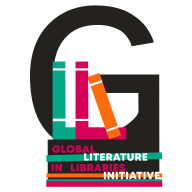As soon as you open Alexander Shpatov’s short story collection and read the first story “Experience Sofia”, you know that this author loves his city. He loves it so much that he wants the reader to love it too and – even better – to see it with the eyes of someone who has lived there all of his life. Reading these stories is an initiation. If you’ve never been to Sofia, it’s likely you’re so intrigued, you’ll feel like visiting as soon as possible. If you’ve been there before, it’s possible, you’ll discover entirely new sides to a lively city that is rich in history.
Even though, you could read this as a literary guide book, that’s obviously not what this short story collection is. Or not only. Shpatov’s book has a main theme in all of the stories and that is his city, Sofia, but, close behind, there’s another equally important theme and that is storytelling. While some stories are straightforward tales, many are more experimental and explore the many facets of narrative and storytelling. That’s mostly very playful and engaging.
Short story collections come in many forms. Some are just that – a collection of stories, others are far more cohesive. Shpatov’s is one of the latter. The way the stories mirror each other, how stories add elements to former stories, pick up themes or techniques, is nothing if not intricate.
As I mentioned before, one could read this a bit like a guide book, but then there’s also the theme of visitors, tourists, and tour guides. What do you show someone who is a foreigner? The tourist sights? Or sites where famous historical events took place? Or rather random, whimsical things? The stories move from the grand to the trivial and in doing so, show the reader the known and the unknown, the visible and the hidden Sofia.
One thing that surprised me was how present communism or its aftermath was in all of these stories. To this day, the traces of communism seem omnipresent. In the stories we encounter this in the themes of urban design or bureaucratic arbitrariness. Some of the stories are almost Kafkaesque. People have to prove that they are really from Sofia, although they were born there, or they land in underground shopping malls that don’t even exist, get arrested, and cannot leave anymore.
My favourite stories in this collection were:
“Experience Sofia”, which consists of a list of everything you should see and do in Sofia.
“In the catacombs under St. Sophia; in an attic with a view of St. Nevski; with pink tomatoes from the Women’s Market; draft Stolichno in Krivoto during the winter; Ariana cans in front of the National Theater when it’s warmer; аnd definitely go inside when the season starts again in October; go up the boulder rivers on Vitosha; climb its highest peak Cherni Vrah (also hit Mt Kamen Del and the Boyana Waterfall); go down the Roman stairs at Arena di Serdica; take the metro all the way from Youth I to Obelya and back; sit in an hour-long Tsarigradsko traffic jam, in a Friday rush to the seaside; Sofia Film Fest at the House of Cinema; drink from the hot water springs by the Baths; see Levski – CSKA live; play ball in Sportna Sofia; night skiing on the slopes of Laleto; wakeboarding after work in Kazichene; share a first kiss on the Lily Pond in Borissova Gradina – then a follow-up in the lift to Aleko or a classic selfie on the Lover’s Bridge; munch sunflower seeds on a bench; ( . . . )
The whole story can be found here.
“My Mother’s Birthday Party in Youth II”, an absolutely charming, nostalgic story, in which the narrator is the only younger person and introduces the older people to the joy of discovering the songs of their youth on YouTube. It is sprinkled with interesting information on a specific neighbourhood.
“Princess from Slaveykov” one of the most original love stories I’ve come across. You have to finish it to understand how clever it is and once you’ve arrived at the end, you’ll feel like rereading it immediately.
“Sets” is a story that baffled me because it turned my expectations upside down. It reads like a gangster story set in New York, but after a while, we understand, the narrator is an extra in a film set. Like most of Shpatov’s stories it’s entertaining and informative. I had no idea that movies like “300 – Rise of an Empire”, “The Expendables”, “The Black Dahlia”, “Conan the Barbarian” and many more were shot in Bulgaria.
Shpatov’s collection is diverse and quirky, but not always accessible, as he plays with form and reader expectations.
I’m pretty sure that Alexander Shpatov was hoping reading this book would make someone want to visit Sofia. If that’s the case, then he certainly succeeded. I would love to read more Bulgarian literature and I definitely want to visit Sofia and experience the places that were mentioned in this book.
Caroline Couderc

Alexander Shpatov was born in 1985 in Sofia. He is a graduate of the American College of Sofia and the Sofia University Law School. He is author of the short story collections #LiveFromSofia (2014), available in both an English and a Bulgarian-language edition and Volume 2.0 (2015), an updated joint reprint of his early works Footnotes (2005), Footnote Stories (2008, published also in German in 2011) and Calendar of Stories (2011). He has been awarded the National Best Fiction Debut Prize for 2005 and the Sofia Award for Literature for 2015.
Alexander Shpatov is also a co-scriptwriter for short films based on several of his stories and a screenwriter for the sitcom series Clinic on the Third Floor, produced by Bulgarian National Television. He is the organizer of annual exhibitions of bookmark art, participant in the Sozopol Fiction Seminars, organized by the Elizabeth Kostova Foundation and in the British Council’s Litager Project. Currently, Shpatov is the chairman of the Sofia-based Association for Small Urban Libraries.

Angela Rodel is a professional literary translator living and working in Bulgaria. She holds a B.A. from Yale and an M.A. from UCLA in linguistics. She received a 2014 NEA translation grant for Georgi Gospodinov’s novel The Physics of Sorrow (Open Letter 2015), as well as a 2010 PEN Translation Fund Grant for Georgi Tenev’s short story collection Holy Light – the first time a Bulgarian-language work has received either award. Her translation of Physics of Sorrow won the National Book Center’s 2015 Peroto Prize for best translation from Bulgarian, the 2016 AATSEEL Prize for Best Book of Literary Translation, and was nominated for the three most prestigious translation awards in the US: finalist for the 2016 PEN Translation Prize, the 2016 National Translation Award from the American Literary Translators Association, and Three Percent’s Best Translated Book Award for 2016. Angela’s translations of Milen Ruskov’s novel Thrown into Nature (2011), Zachary Karabashliev’s 18% Gray (2013) and Angel Igov’s A Short Tale of Shame (2013) and Georgi Tenev’s Party Headquarters (2015) have been published by Open Letter Books thanks to support from the Elizabeth Kostova Foundation. The UK publishing house Istros Books published her translation of Virginia Zaharieva’s novel Nine Rabbits in 2012, which was re-released by Black Balloon in the US in 2014. Her translation of the classic Bulgarian novel The Wolf Hunt by Ivaylo Petrov will be published in spring 2017 by Archipelago Books. Her translation of Ivan Dimitrov’s play, The Eyes of Others, was performed at the Ohio Theater in New York City in September 2012. Her poetry and prose translations have also appeared in numerous literary magazines and anthologies, including McSweeney’s, Little Star, Ploughshares, Granta.org, Two Lines, and Words Without Borders, among others. In 2014, she was awarded Bulgarian citizenship for her translation work and contribution to Bulgarian culture.

Caroline Couderc is a Franco-Italian who lives in the German speaking part of Switzerland. She’s a multilingual writer and translator and has degrees in Cultural Anthropology, French Literature and Linguistics. Her works has been published: War, Literature and the Arts, The Antigonish Review, Boston Literary Magazine, Shotgun Honey, The Airgonaut and many more. She blogs at Beauty is a Sleeping Cat.


I’m slightly ashamed to say that I don’t think I’ve read any Bulgarian literature at all. It’s an area of the literary world that’s completely unknown to me. I like the sound of the diversity of stories in this collection – they seem fresh and exciting. And you have me intrigued with your comments about “Princess from Slaveykov”! Lovely review as ever, Caroline.
LikeLiked by 2 people
Thank you so much for your comment and for reading the review, Jacqui.
Like you, I was also feeling a bit ashamed that I’ve never read any Bulgarian literature. It seems so rich and diverse and well worth exploring.
“Princess from Slaveyko” is so smart. I really enjoyed it.
LikeLiked by 2 people
You could read Princesses from Slaveykov and some other stories here: http://www.contemporarybulgarianwriters.com/wp-content/uploads/2015/03/livefromsofia_Alexander-Shpatov.pdf
LikeLiked by 1 person
Ah, this is great! I’m visiting Bulgaria later this year and looking for some local literature to read, so this sounds ideal. Thanks Caroline!
LikeLike